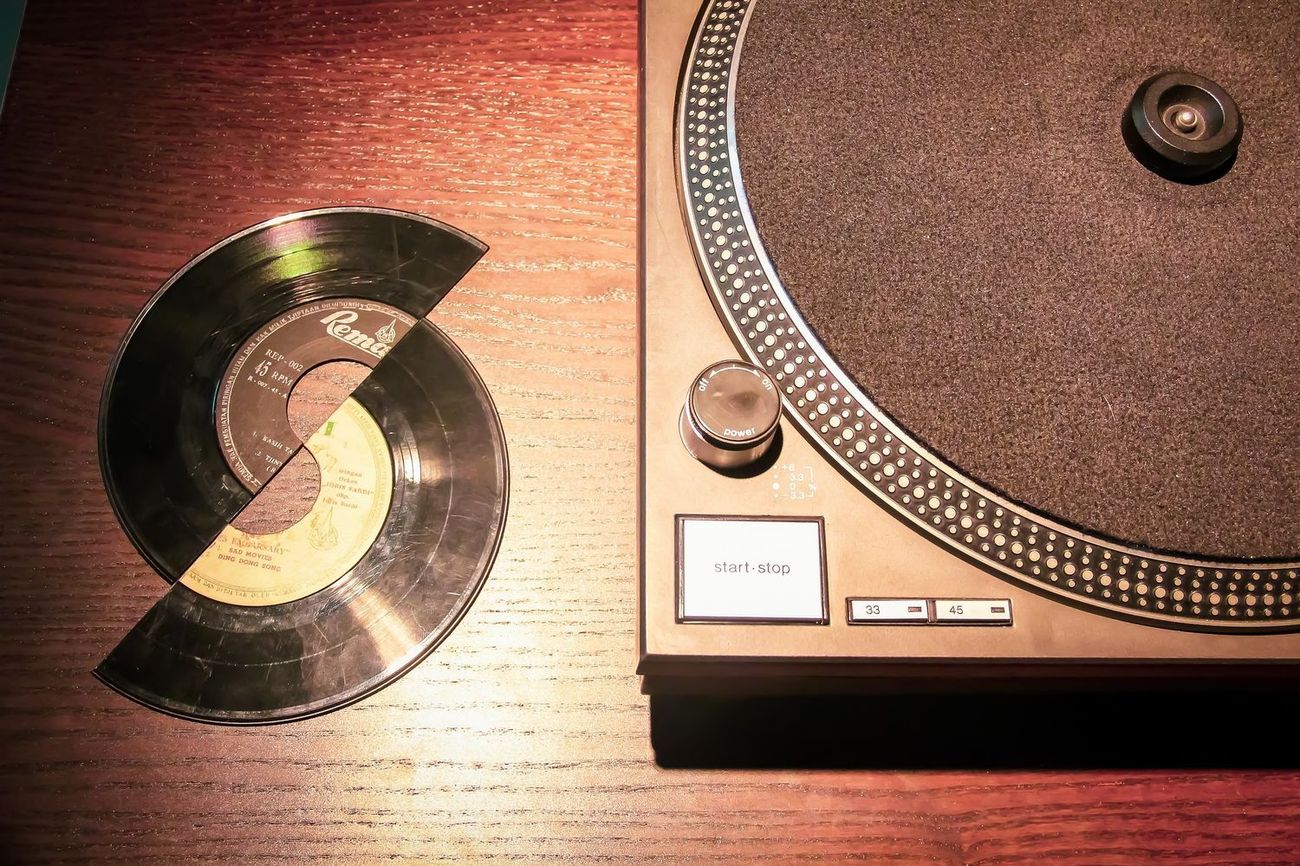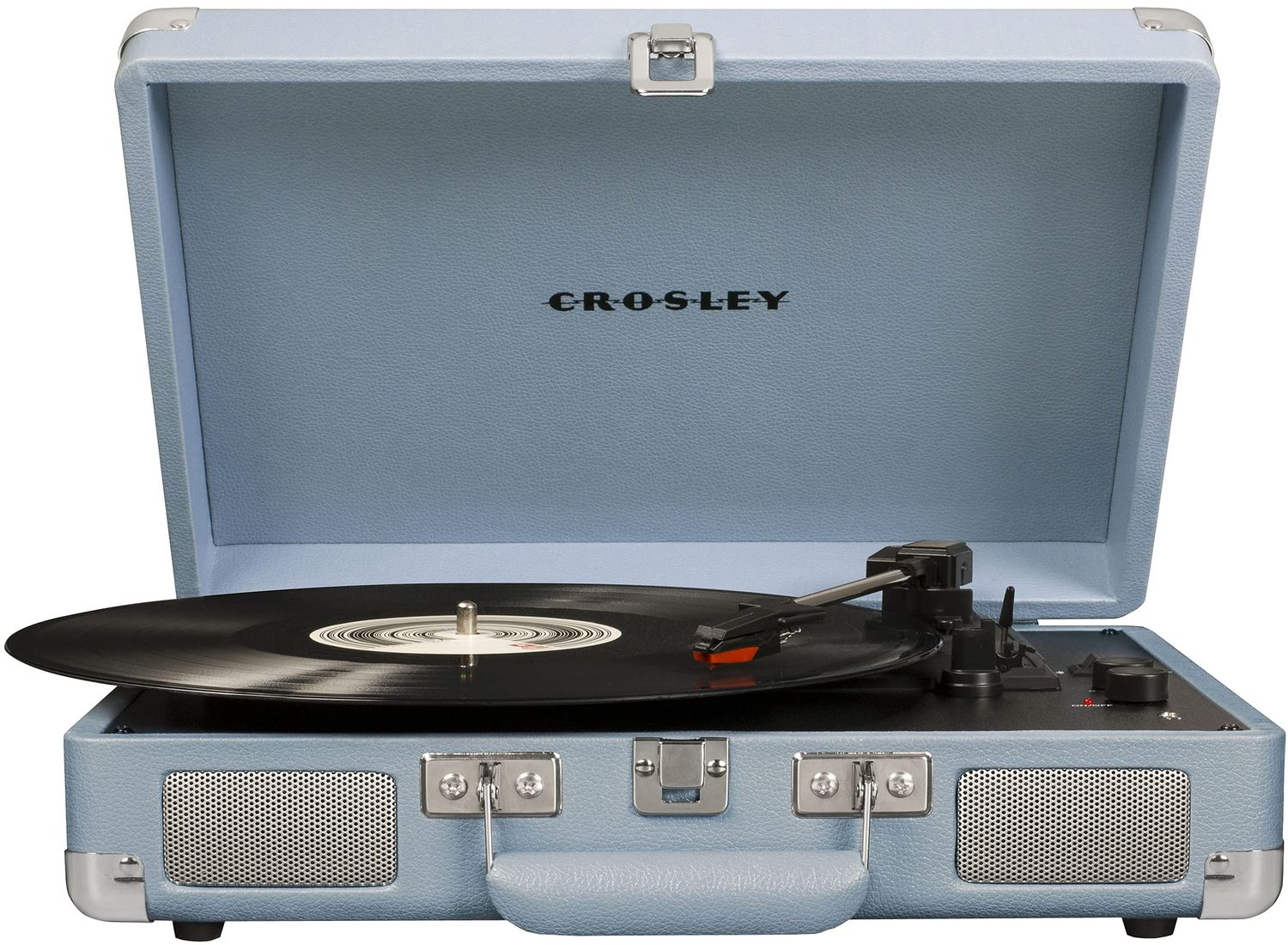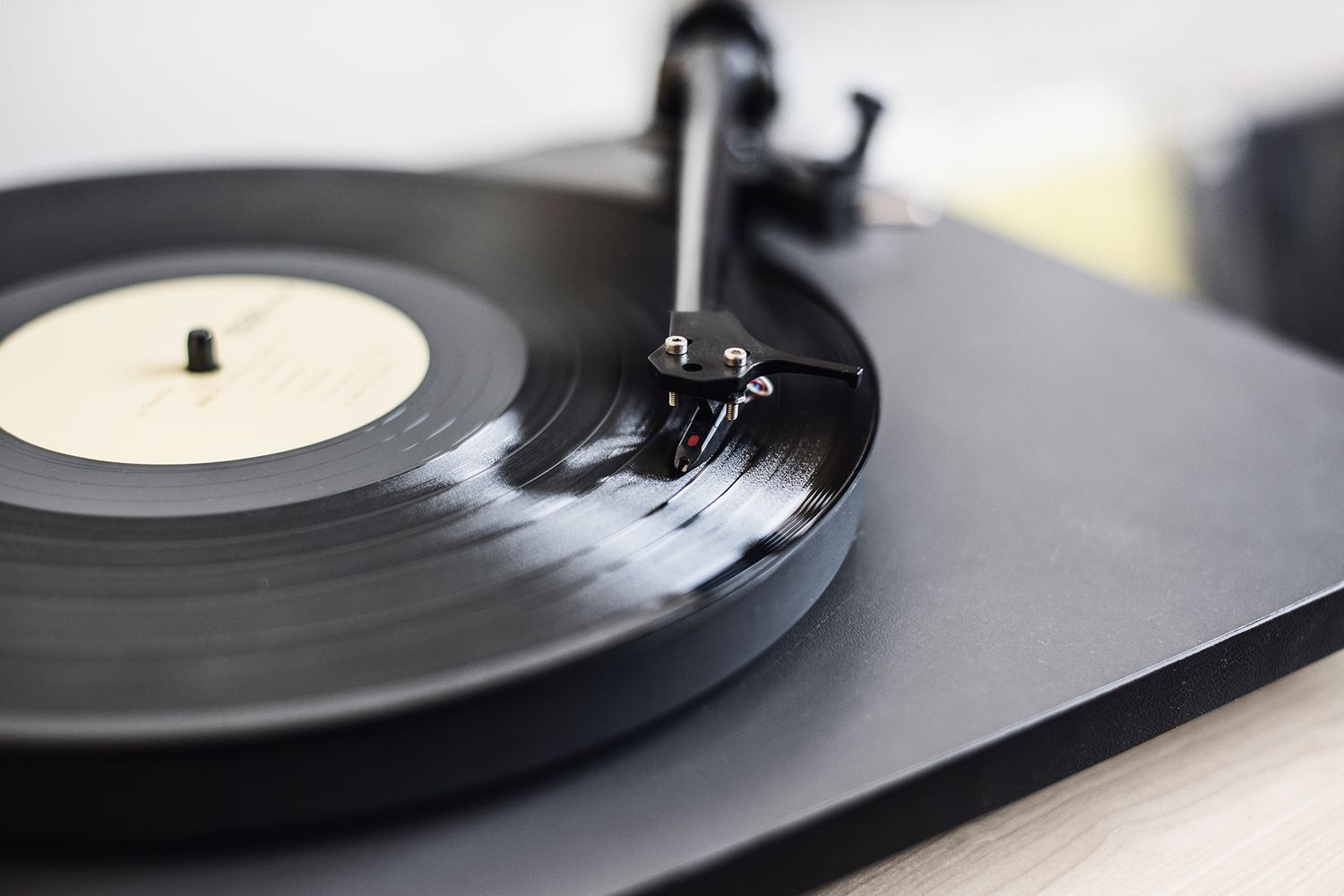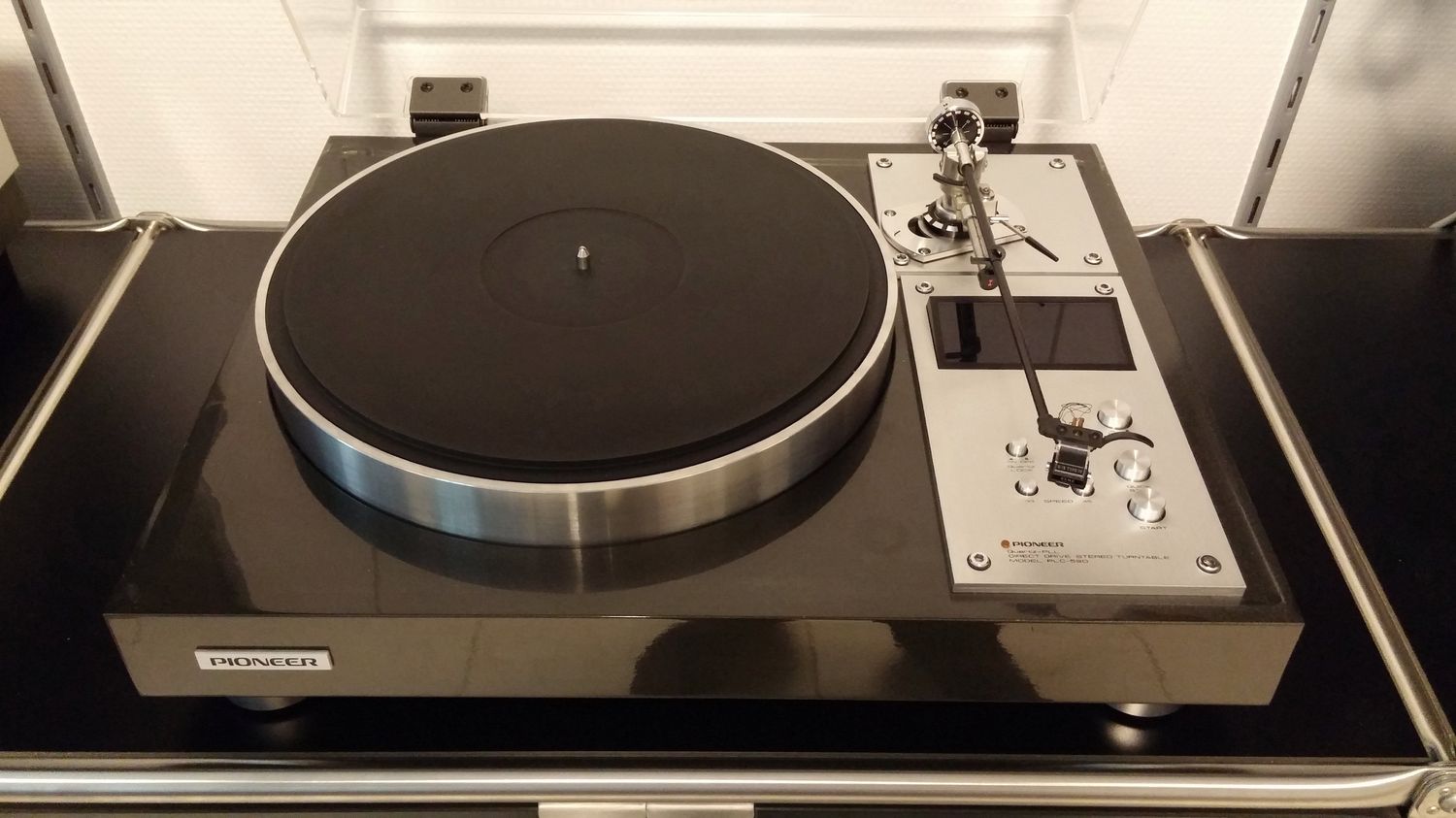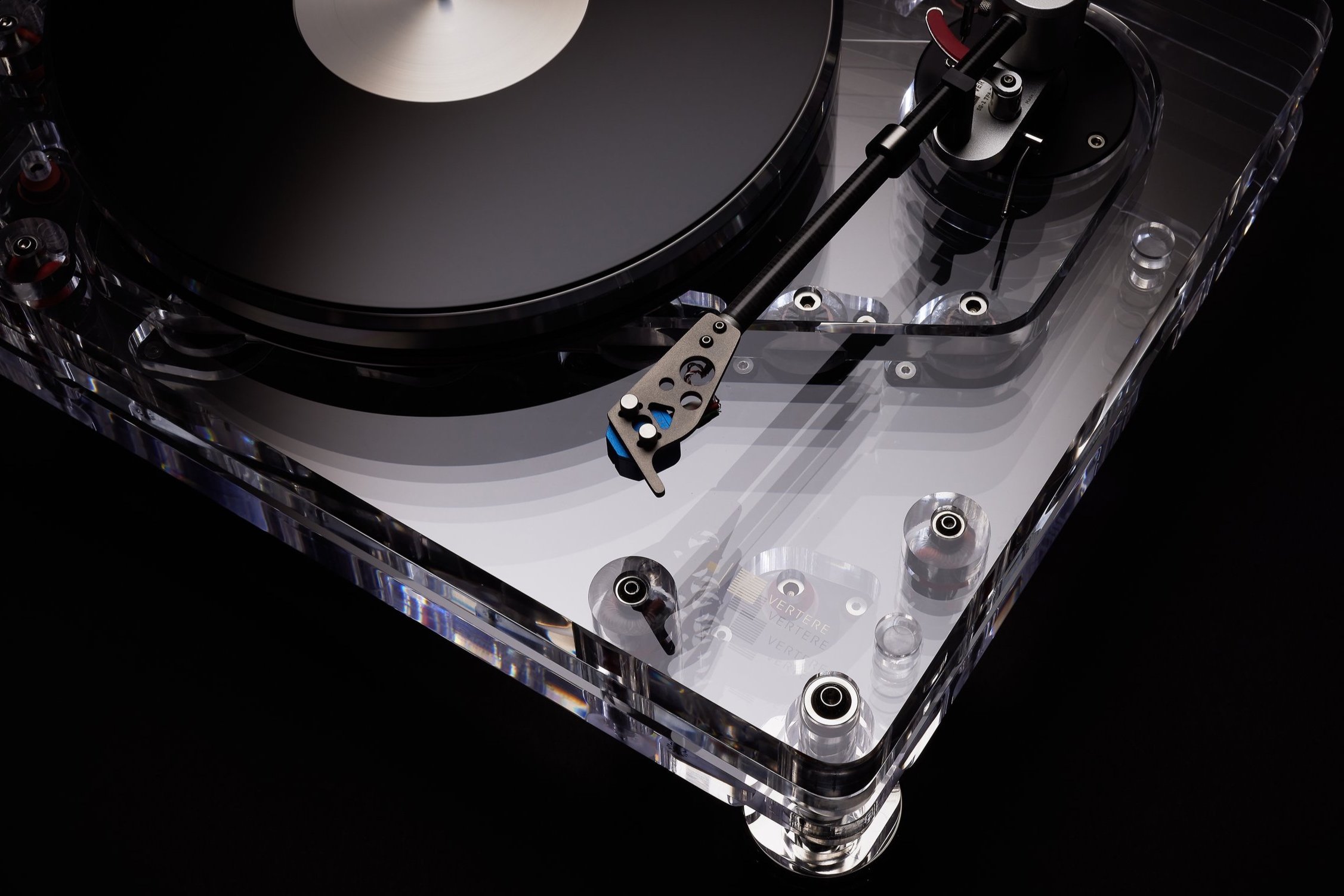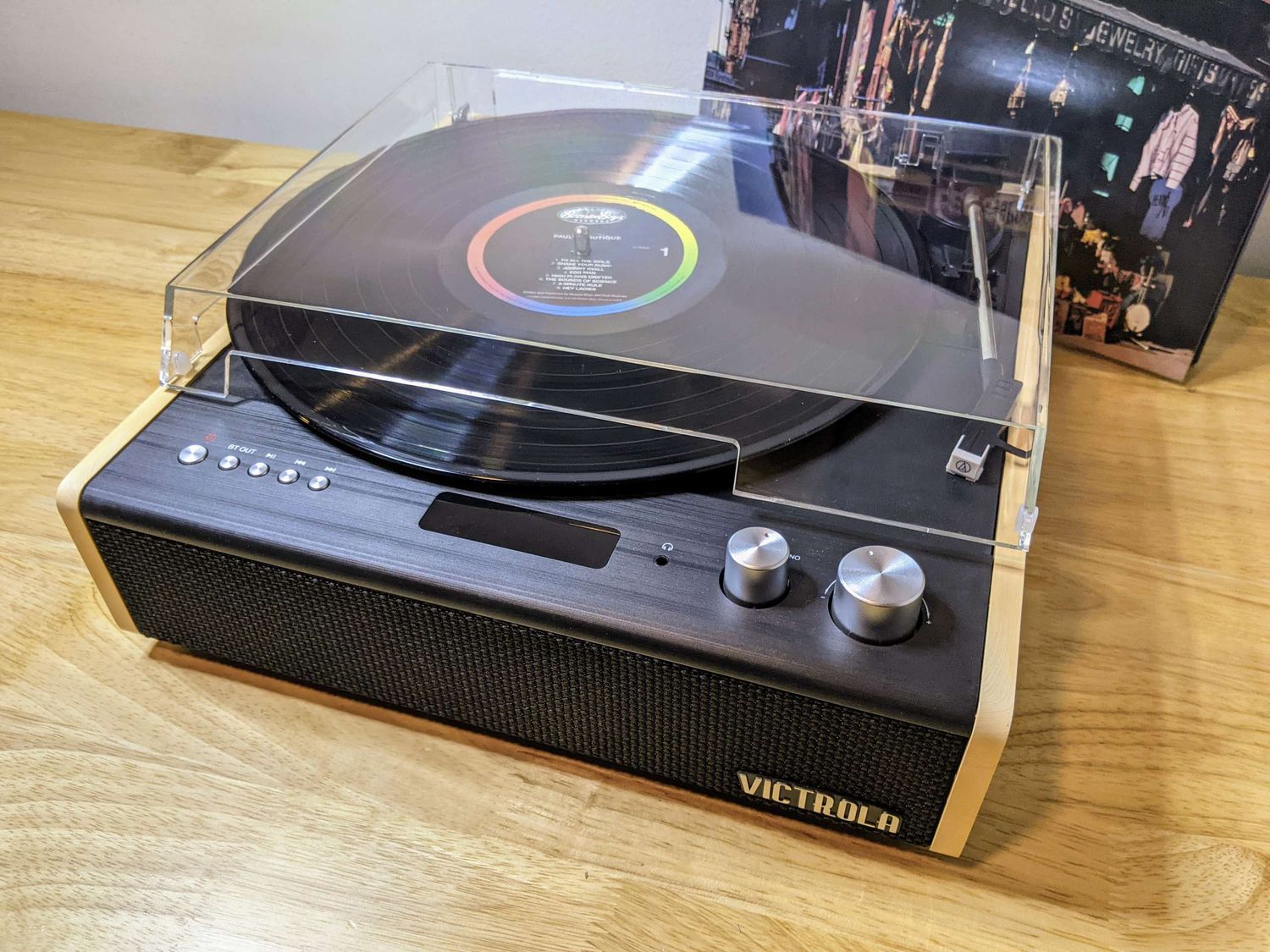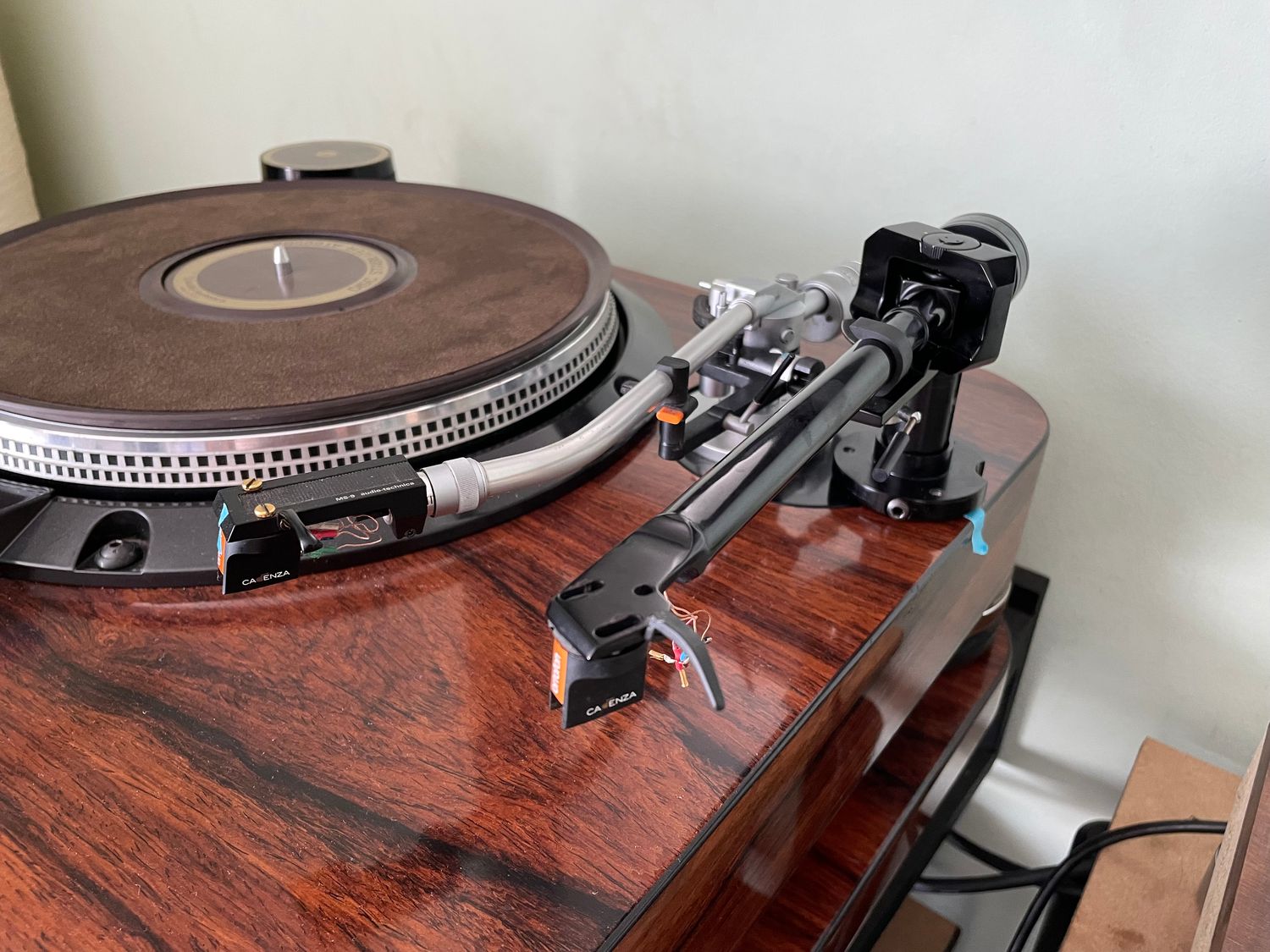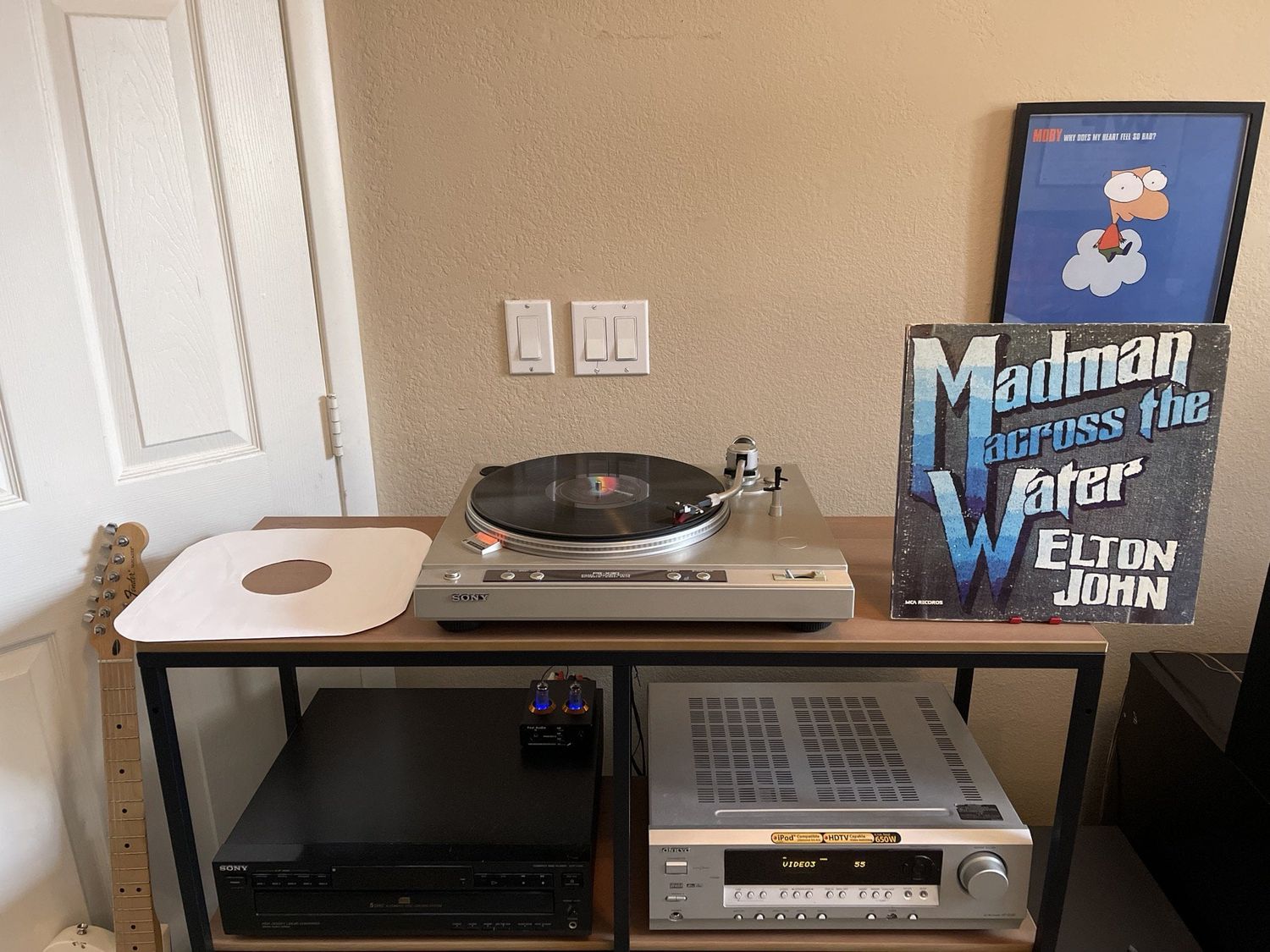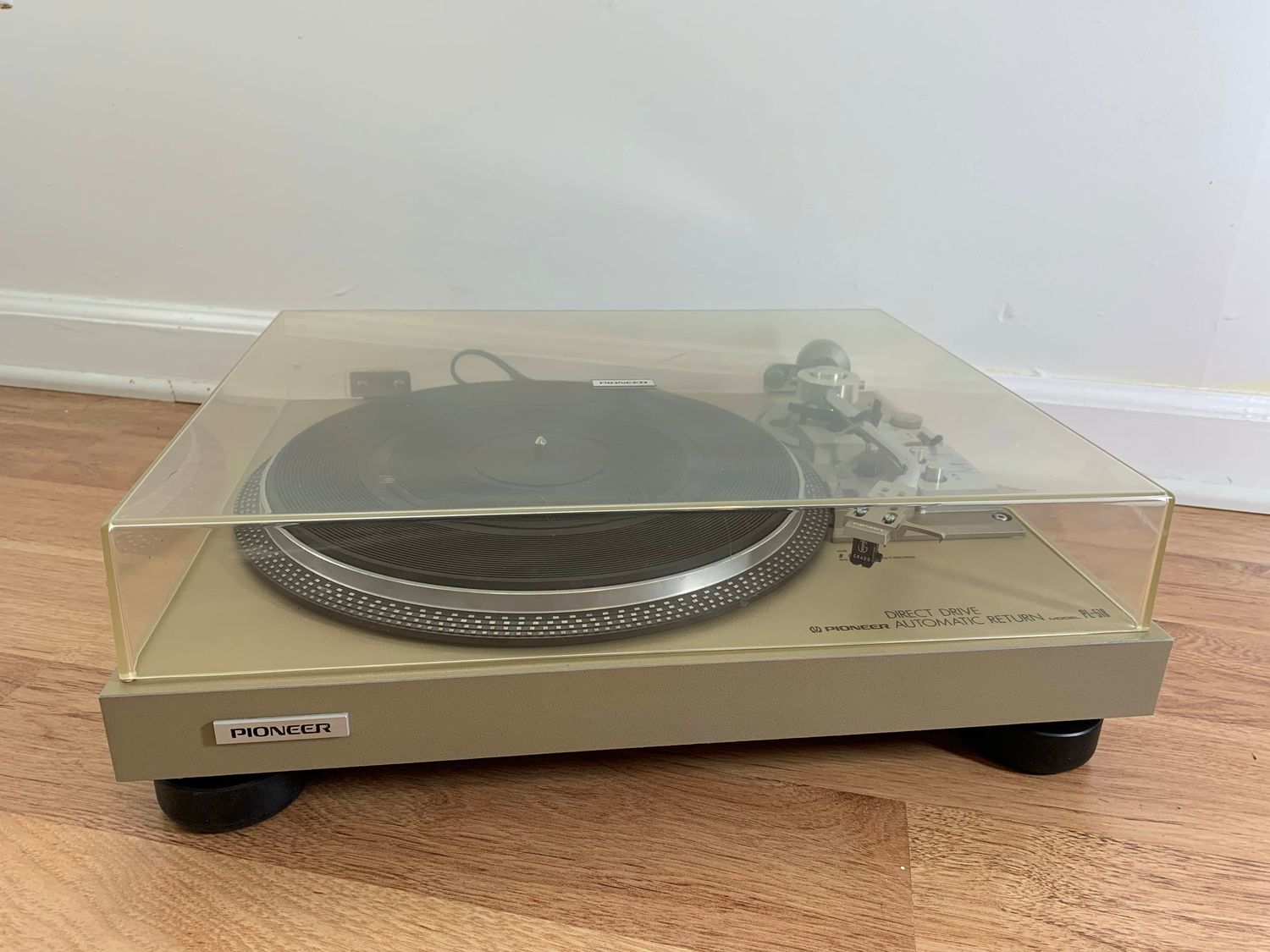Home>Devices & Equipment>Turntable>How Much Is A Used Pioneer Turntable Worth
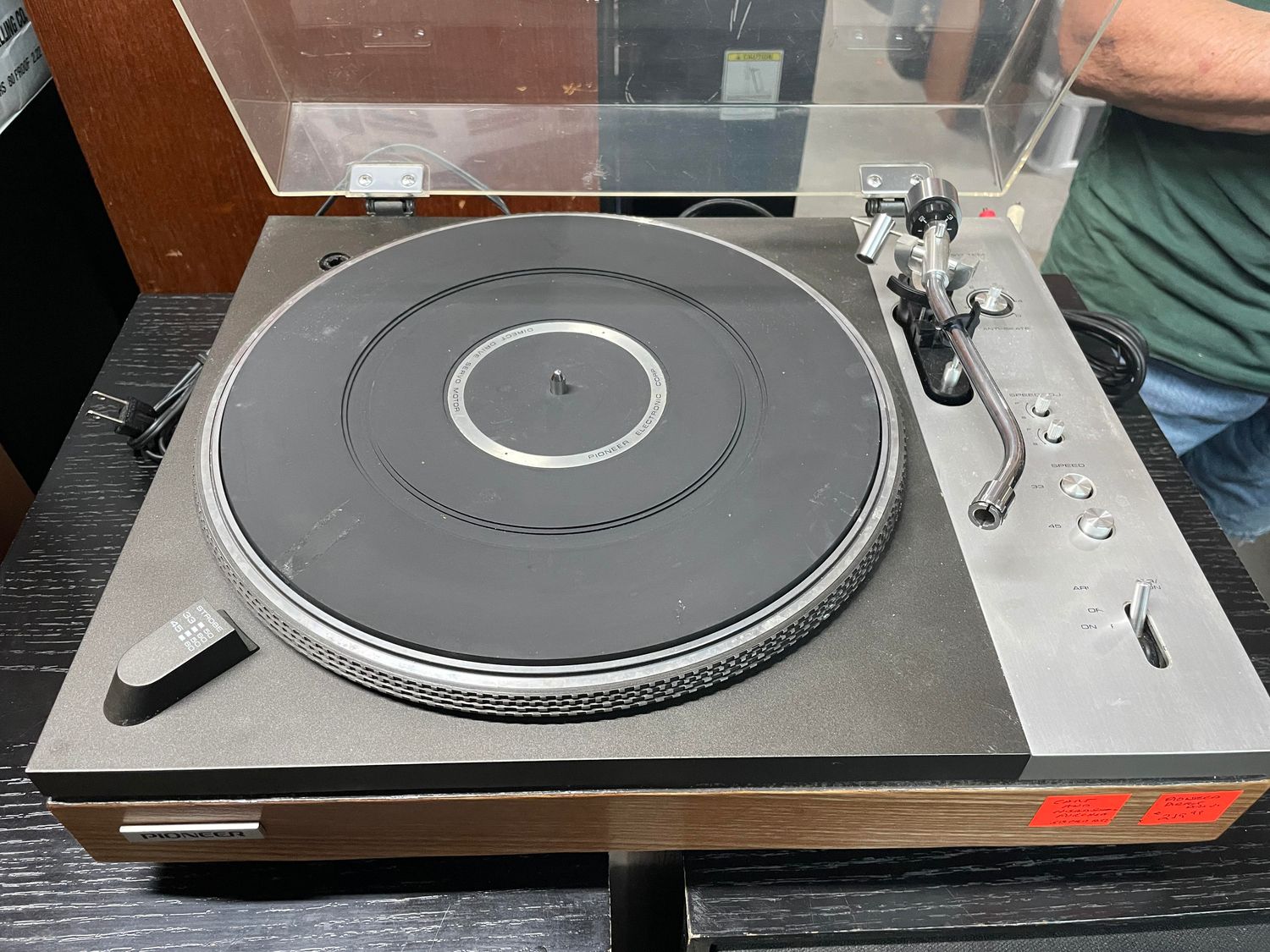

Turntable
How Much Is A Used Pioneer Turntable Worth
Published: January 18, 2024
Looking to sell or buy a used Pioneer turntable? Find out the current market value and worth of used turntables in our comprehensive guide.
(Many of the links in this article redirect to a specific reviewed product. Your purchase of these products through affiliate links helps to generate commission for AudioLover.com, at no extra cost. Learn more)
Table of Contents
- Introduction
- Factors that Determine the Value of a Used Pioneer Turntable
- Condition: The Most Influential Factor
- Model and Age: The significance of Pioneer Turntable Versions
- Rarity and Collectibility: Adding Value to Used Pioneer Turntables
- Upgrades and Modifications: Impact on the Value of Pioneer Turntables
- Demand and Market Trends: Affecting the Worth of Used Pioneer Turntables
- Researching and Evaluating the Value of a Used Pioneer Turntable
- Conclusion
Introduction
Turntables have experienced a resurgence in popularity in recent years, attracting both dedicated audiophiles and music enthusiasts alike. Among the top brands in the industry, Pioneer has long been recognized for its high-quality turntables that combine precision engineering with exceptional sound reproduction.
For those looking to enter the world of vinyl or expand their existing vinyl collection, purchasing a used Pioneer turntable can be a cost-effective solution. However, determining the worth of a used Pioneer turntable can be a complex task influenced by various factors.
Whether you’re a seasoned vinyl collector or a novice searching for a vintage gem, understanding the factors that contribute to the value of a used Pioneer turntable is vital. In this article, we will explore these factors, providing insights into how they affect the worth of a used Pioneer turntable.
We will delve into the condition of the turntable, as well as the model and age, rarity and collectibility, upgrades and modifications, and current market trends. By understanding the dynamics of these factors, you’ll be better equipped to evaluate the value of a used Pioneer turntable before making a purchase or selling one.
However, it’s worth noting that determining the value of a used Pioneer turntable is not an exact science. Prices can fluctuate based on individual preferences and market conditions. Ultimately, the true worth of a used Pioneer turntable is determined by the buyer and seller in a given transaction.
Factors that Determine the Value of a Used Pioneer Turntable
When it comes to determining the value of a used Pioneer turntable, several factors come into play. Understanding these factors can help you make an informed decision when buying or selling a turntable. Let’s explore the main factors that contribute to the value of a used Pioneer turntable.
- Condition: The condition of a used Pioneer turntable is arguably the most influential factor in determining its value. A turntable in excellent condition, with minimal wear and tear, will typically command a higher price than one that is heavily damaged or in need of significant repair. Buyers value a well-maintained turntable that functions correctly and looks visually appealing.
- Model and Age: The specific model and age of a Pioneer turntable can also impact its value. Certain models may be more sought after than others due to their unique features, performance capabilities, or historical significance. Older models, especially those considered vintage or classic, often hold a special allure for collectors and can command higher prices.
- Rarity and Collectibility: The rarity and collectibility of a used Pioneer turntable can significantly increase its value. Limited edition releases, special color variants, or models that were only produced in small quantities can be highly sought after by collectors. The scarcity of these turntables makes them more valuable in the eyes of collectors who are willing to pay a premium for them.
- Upgrades and Modifications: Any upgrades or modifications performed on a used Pioneer turntable can affect its value. Upgrades such as aftermarket tonearms, cartridges, or platter mats can enhance the performance and sound quality of the turntable, thus increasing its value. However, it’s essential to note that not all modifications may add value, as some buyers prefer original, unaltered turntables.
- Demand and Market Trends: The demand for Pioneer turntables, as well as the overall market trends, can also impact their value. If there is a high demand for a particular model or if Pioneer turntables, in general, are experiencing increased popularity, the prices of used turntables may rise. Conversely, if the market is saturated with similar models or if the demand for Pioneer turntables is low, prices may be more competitive.
By considering these factors when determining the value of a used Pioneer turntable, you can ensure that you are making an informed decision based on the various elements that contribute to its worth. It’s important to research and evaluate each factor thoroughly, taking into account the specific details of the turntable in question.
Condition: The Most Influential Factor
When it comes to determining the value of a used Pioneer turntable, the condition is undeniably the most influential factor. The overall condition of a turntable plays a significant role in its functionality, aesthetic appeal, and potential for long-term use.
A turntable in excellent condition, with minimal signs of wear and tear, will typically command a higher price than one that is heavily damaged or in need of repairs. Buyers and collectors value a well-maintained turntable that not only functions correctly but also looks visually appealing.
The condition of a used Pioneer turntable can be evaluated by considering several aspects:
- Physical appearance: The overall physical appearance of the turntable is crucial. Are there scratches, dents, or other visible damage? Is the dust cover intact and free from cracks or significant blemishes? A turntable with a clean and well-preserved exterior will generally fetch a higher price.
- Working components: It’s essential to assess the functionality of various components, such as the motor, tonearm, platter, and speed controls. Are they operating smoothly and consistently? Are there any mechanical issues or performance inconsistencies? A fully functional turntable with all components in optimal working condition is highly desirable and will likely have a higher value.
- Cartridge and stylus condition: The condition of the cartridge and stylus, which are responsible for converting the grooves on the vinyl into sound, is crucial. Are they in good shape and able to produce high-quality audio? A well-maintained cartridge and stylus that have been properly cared for and are still producing excellent sound can positively impact the value of the turntable.
- Electronics and connections: Check all electronic components and connections to ensure they are functioning correctly. Are there any issues with the wiring, capacitors, or connections? A turntable with reliable electronics and sturdy connections will be more appealing to buyers.
It’s important to note that while some imperfections or signs of wear are expected with used turntables, excessive damage or significant functional issues can dramatically affect the value. Additionally, a turntable that has been well-maintained with regular cleaning and servicing will generally hold greater value than one that has been neglected.
When evaluating the condition of a used Pioneer turntable, it can be helpful to consult with an experienced technician or a reputable turntable specialist who can provide a more accurate assessment. Their expertise can assist in identifying any hidden issues and determining the true condition of the turntable.
Ultimately, a turntable in excellent condition will not only offer a superior listening experience but will also hold its value over time. Taking the time to ensure the condition of a used Pioneer turntable is of utmost importance when assessing its worth.
Model and Age: The significance of Pioneer Turntable Versions
When determining the value of a used Pioneer turntable, the specific model and age of the turntable are important factors to consider. Pioneer has produced a wide range of turntable models over the years, each with its own unique features and characteristics.
The model of a Pioneer turntable can significantly influence its value. Certain models may be more sought after than others due to their reputation, performance capabilities, or historical significance. For example, Pioneer’s high-end models, such as the PL-530, PL-630, or PL-990, are highly regarded for their exceptional build quality and audio performance. These models often command higher prices in the used market.
Similarly, vintage or classic Pioneer turntables, known for their iconic designs and engineering excellence, are often highly sought after by collectors. These turntables harken back to a golden era of audio and can evoke a sense of nostalgia and appreciation for the craftsmanship of earlier generations.
The age of a Pioneer turntable can also impact its value. Vintage or older models, particularly those from the 1970s and 1980s, are often considered more desirable due to their historical significance and potential rarity. These turntables may have unique design elements or features that are beloved by collectors and audiophiles.
Furthermore, the age of a Pioneer turntable can also correspond to improvements or advancements in technology. Newer models may incorporate updated components or innovative features not found in older models. While these newer turntables may be more readily available, they can still hold value due to their enhanced performance or convenience features.
It is important to note that the significance of the model and age of a Pioneer turntable can vary depending on individual preferences and market trends. Some collectors may value specific models or eras more than others. Additionally, certain models may have limited production runs or special editions, contributing to their desirability and potential for increased value.
Researching and familiarizing yourself with the different models and versions of Pioneer turntables can greatly aid in determining the value of a used turntable. Online forums, collector communities, and reputable audio equipment websites can provide valuable insights into the popularity and relative worth of various models.
Ultimately, the model and age of a Pioneer turntable play a significant role in its value. Collectors and enthusiasts are often drawn to specific models or eras, and these factors can greatly influence the demand and price of a used turntable in the market.
Rarity and Collectibility: Adding Value to Used Pioneer Turntables
When assessing the value of a used Pioneer turntable, the rarity and collectibility of the specific model or edition can significantly increase its worth. Collectors and enthusiasts often seek out turntables that are unique, limited in production, or have distinctive features, making them highly sought after in the market.
Rare Pioneer turntables are those that were produced in limited quantities or have unique characteristics that set them apart from the standard models. Limited edition releases, special color variants, or turntables that were only available in certain regions can all increase their collectibility and appeal to enthusiasts.
The rarity of a Pioneer turntable can greatly impact its value, as collectors are often willing to pay a premium for these unique finds. The scarcity of these turntables adds to their desirability, as they become harder to come by over time.
Collectibility also plays a significant role in adding value to a used Pioneer turntable. Some collectors focus on specific themes, such as turntables from a particular era, models with specific features, or those associated with specific artists or albums. Turntables that align with these collector preferences can command higher prices due to their increased demand.
Moreover, turntables associated with significant historical events or musical icons may have added collectibility. For example, a Pioneer turntable that was used by a famous DJ or featured prominently in a historic live performance may hold heightened appeal for collectors and enthusiasts.
It’s worth mentioning that accurately assessing the rarity and collectibility of a used Pioneer turntable can sometimes be challenging. Researching historical records, consulting with experts, and engaging with collector communities and forums can provide valuable insights into the relative rarity of a particular turntable.
When determining the value of a used Pioneer turntable, it’s important to consider its rarity and collectibility as factors that can significantly impact its worth. These attributes appeal to collectors who are often willing to pay a premium for turntables that are unique, limited in production, or associated with notable events or individuals in music history.
Upgrades and Modifications: Impact on the Value of Pioneer Turntables
When evaluating the value of a used Pioneer turntable, it’s important to consider any upgrades or modifications that have been made to the original stock configuration. Upgrades and modifications can have both positive and negative effects on the value of a turntable, depending on various factors.
Some upgrades and modifications can enhance the performance and audio quality of a Pioneer turntable, making it more desirable for audiophiles and collectors. For example, aftermarket tonearms, cartridges, platter mats, or upgraded power supplies can significantly enhance the overall sound reproduction and accuracy of the turntable. These upgrades can attract buyers who are willing to pay a premium for a turntable with improved performance.
Additionally, modifications that improve the durability or functionality of the turntable, such as better isolation feet, upgraded RCA cables, or improved grounding systems, can also contribute positively to the value. These enhancements demonstrate that the turntable has been carefully customized to deliver optimal performance.
On the other hand, it’s important to note that not all modifications may increase the value of a used Pioneer turntable. Some purists and collectors prefer original, unaltered turntables, valuing their authenticity and historical accuracy. This is especially true for vintage or classic models, where originality is highly prized.
Modifications that are poorly executed or negatively impact the performance of the turntable can also decrease the value. Overly invasive modifications or alterations that compromise the structural integrity of the turntable may deter potential buyers who prefer a more pristine, unaltered condition.
When considering the impact of upgrades and modifications on the value of a used Pioneer turntable, it’s essential to balance the preferences of potential buyers and the overall quality of the modifications. Taking into account factors such as the reputation of the aftermarket brands used, the skill and expertise of the technician who performed the modifications, and the overall cohesion of the modified components can help evaluate their impact on the turntable’s worth.
Ultimately, the value of a used Pioneer turntable with upgrades and modifications will be determined by the preferences and demand of potential buyers. It’s advisable to research the market and consult with knowledgeable experts or audio enthusiasts to gain insight into which upgrades and modifications are most sought after and likely to increase the value of the turntable.
Demand and Market Trends: Affecting the Worth of Used Pioneer Turntables
The demand for used Pioneer turntables, as well as the overall market trends, can have a significant impact on their worth. Understanding the current market dynamics and consumer preferences is crucial when evaluating the value of a used turntable.
One of the primary factors that affect the worth of a used Pioneer turntable is the demand for that specific model or brand. If a particular Pioneer turntable is highly sought after by collectors or audiophiles, its value is likely to be higher. Factors such as positive reviews, exceptional sound quality, or iconic status can drive up demand and subsequently increase the price.
Market trends also play a role in determining the worth of a used Pioneer turntable. These trends can be influenced by various factors, including changes in consumer preferences, emerging technologies, or shifts in the popularity of vinyl records. For example, if there is a surge in demand for vinyl records and turntables, the prices of used Pioneer turntables may increase due to higher overall demand.
Conversely, if the market becomes saturated with similar models or if there is a decline in the overall demand for vinyl records, the prices of used Pioneer turntables may become more competitive. Market trends can be influenced by factors such as advancements in digital audio technologies or changes in music consumption habits.
Staying informed about current market trends by monitoring online marketplaces, audio equipment forums, and industry publications can provide valuable insight into the demand for specific Pioneer turntable models. Additionally, engaging with the passionate community of vinyl enthusiasts and collectors can offer a deeper understanding of the preferences and trends shaping the market.
It’s important to note that the demand for used Pioneer turntables can fluctuate over time. What may be popular today might not hold the same appeal in the future. Factors such as the release of new Pioneer models or advancements in audio technology can impact the demand for older turntables.
Considering the demand and market trends when evaluating the worth of a used Pioneer turntable allows for a more accurate assessment. Keeping an eye on market dynamics and understanding consumer preferences can help both buyers and sellers make informed decisions and navigate the ever-changing landscape of the used turntable market.
Researching and Evaluating the Value of a Used Pioneer Turntable
Researching and evaluating the value of a used Pioneer turntable is essential to ensure that you are making an informed decision when buying or selling. Here are some key steps to consider when conducting your research:
- Comparative Analysis: Start by conducting a comparative analysis of similar Pioneer turntables that are currently listed for sale. Look for listings on online marketplaces, forums, and classified ads to get an idea of the price range for comparable models in similar condition.
- Expert Advice: Seek guidance from experienced technicians, audio experts, or turntable enthusiasts who have knowledge about Pioneer turntables. Their expertise can help you assess the condition, authenticity, and market value of a specific model. They may also offer insights into any upgrades or modifications that can affect the value.
- Historical PricingData: Research historical pricing data for the specific Pioneer turntable model you are interested in. Online communities, forums, and audio equipment databases may have recorded sales data that can provide an indication of the average selling price over time. This information can be helpful in identifying price trends and fluctuations.
- Condition Assessment: Thoroughly assess the condition of the turntable to determine any potential issues or necessary repairs. Be sure to inspect the physical appearance, functionality of various components, and the condition of the cartridge and stylus. Take note of any visible damage or signs of wear that may affect the value.
- Collectors’ Market: If you are dealing with a rare or collectible Pioneer turntable, research the collectors’ market to gauge the value. Explore specialized collector communities or forums where enthusiasts share their knowledge. Understanding the demand and rarity of specific models or editions can provide valuable insights into the worth of these unique turntables.
Keep in mind that the value of a used Pioneer turntable is ultimately subjective and can vary depending on individual perspectives and market conditions. Factors like location, buyer preferences, and current supply and demand dynamics can all influence the perceived value. Therefore, it’s advisable to consider multiple sources of information and gather a wide range of perspectives before settling on a specific value.
Lastly, remember that finding the right buyer or seller is crucial in determining the final price of a used Pioneer turntable. Engaging with reputable dealers, dedicated audio equipment marketplaces, or enthusiasts who appreciate the value of Pioneer turntables can ensure a fair and successful transaction.
By conducting thorough research and considering various factors, you can gain a clear picture of the value of a used Pioneer turntable. This research will empower you to make informed decisions and negotiate deals with confidence.
Conclusion
As you delve into the world of used Pioneer turntables, understanding the factors that determine their value is crucial. Evaluating the condition, considering the model and age, assessing rarity and collectibility, examining upgrades and modifications, and staying aware of market trends and demand all contribute to determining the worth of a used Pioneer turntable.
The condition of a turntable is undeniably the most influential factor, as a well-maintained and fully functional turntable will generally command a higher price. The specific model and age of the turntable can also impact its value, with vintage or classic models often holding a special appeal for collectors. Rarity and collectibility can significantly increase the worth, as limited edition releases and unique variants are highly sought after.
Upgrades and modifications can enhance the performance and value of a turntable, though it’s important to consider the preferences of buyers and the overall quality of the modifications. Lastly, keeping track of market trends and demand is essential, as they can fluctuate over time and affect the value of used Pioneer turntables.
Researching and evaluating the value of a used Pioneer turntable requires conducting comparative analysis, seeking expert advice, examining historical pricing data, assessing the condition, and understanding the collectors’ market. By collecting insights from these sources, you can make informed decisions and negotiate fair transactions.
Ultimately, the value of a used Pioneer turntable is subjective and can vary based on individual preferences and market conditions. Pricing can be influenced by factors beyond the technical specifications, such as sentimental value or the reputation of the brand. Therefore, it’s crucial to consider a range of perspectives and engage with knowledgeable individuals in the audio community.
Whether you are buying or selling a used Pioneer turntable, taking the time to research and evaluate its value will help ensure a fair and satisfying transaction. By understanding the factors that contribute to its worth, you can make informed decisions and embark on a rewarding journey into the world of vinyl and high-quality audio.

